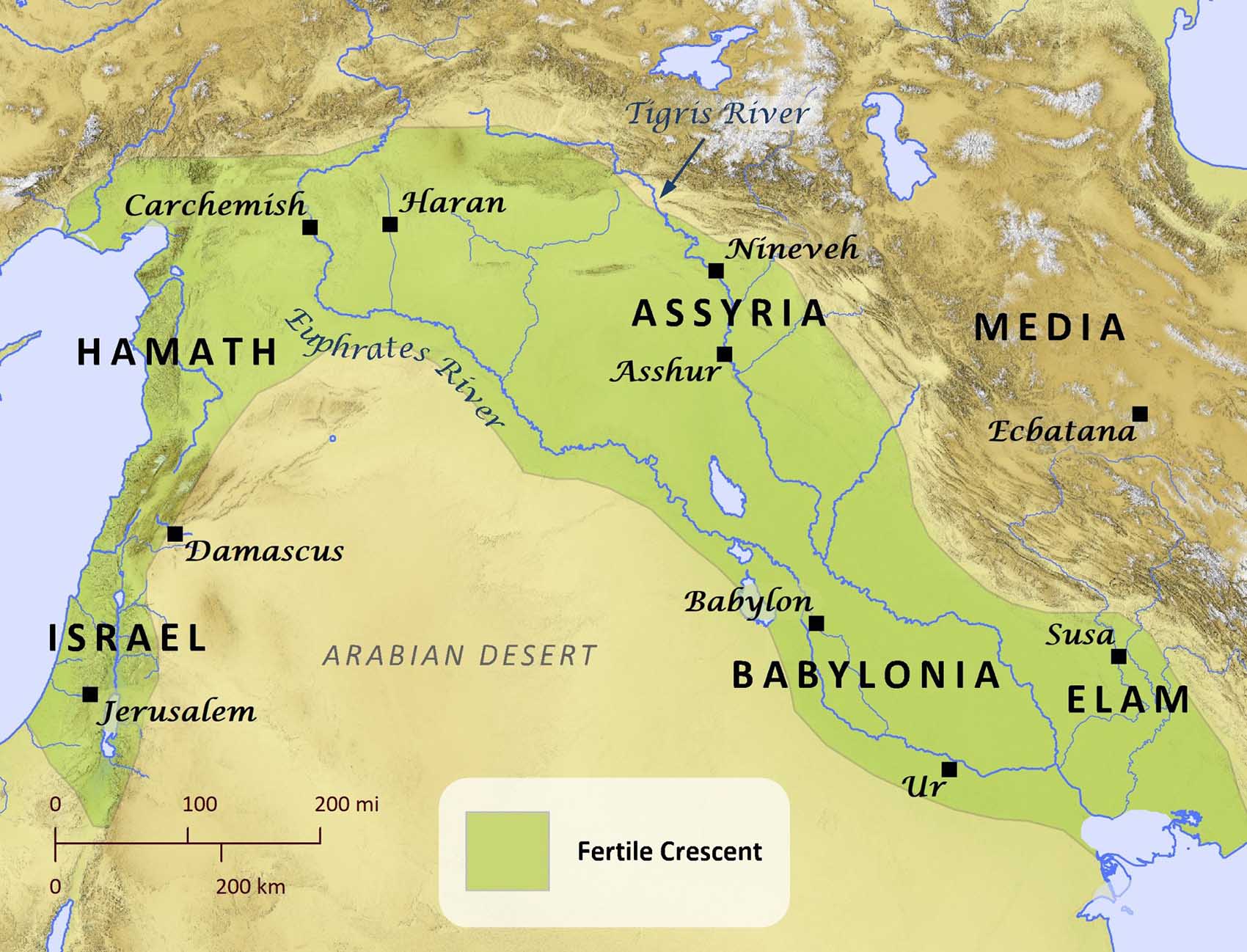Daniel reads the prophecies of Jeremiah concerning the 70 year punishment of the Jews.
Daniel Chapter 9 takes place during King Darius’s first year as ruler over the kingdom of the Chaldeans. Darius, who was of Median descent, took over as ruler of Babylon after Belshazzar the Chaldean was killed in the Medo-Persian conquest (Daniel 5:30-31).
Daniel has lived most of his life in Babylon. He is an exile from Judah, captured by foreign invaders and brought up in a different culture (Daniel 1:6). However, for all the time he has lived in Babylon, under various rulers, Daniel held onto his faith in his God. His loyalty is to God.
At this point, Daniel is an old man. He has lived through several Babylonian kings. He has seen the kingdom of Babylon conquered by the Medes and Persians. Doubtless, he is weary of being far from his home. Kings come and go. Empires rise and fall. Daniel looks to the Scriptures to study God’s promises to the Jewish people. He writes that he observed in the books the number of the years which was revealed as the word of the Lord to Jeremiah the prophet. He reads from Jeremiah 25. God told Jeremiah that, because of the idolatry and disobedience of the Jewish people, God would discipline them by sending Nebuchadnezzar to conquer them. The time period of Babylon’s dominance would be seventy years: “This whole land will be a desolation and a horror, and these nations will serve the king of Babylon seventy years.”(Jeremiah 25:11).
“Desolation” is from the Hebrew word “chorbah,” meaning ‘waste, ruined.’ The city of Jerusalem was destroyed by Babylon’s conquest, and the land of Judah was like a wasteland. Empty, unfruitful, in ruins.
This seventy years of desolation is personal to Daniel, since he was a victim of Nebuchadnezzar’s conquest. He has lived in Babylon for most of his life as a result of Judah’s sin and the resulting punishment. Through the prophet Jeremiah, God explains what He will do after the seventy years are complete:
“‘Then it will be when seventy years are completed I will punish the king of Babylon and that nation,’ declares the Lord, ‘for their iniquity, and the land of the Chaldeans; and I will make it an everlasting desolation” (Jeremiah 25:12).
Babylon’s punishment has occurred at this point in Daniel’s life. The Babylonian empire is finished. The Medes and Persians are now ruling far and wide, including the city of Babylon, where Daniel is still a captive. He studies Jeremiah’s prophecy because he wants to know about the completion of the desolations of Jerusalem. It is worth noting that although Daniel and Jeremiah are alive at the same time, Daniel understands that Jeremiah is a true prophet. He does not question that God has spoken through Jeremiah. He is searching the word of God to understand, and wants to know —is God’s punishment toward the Jews over?
Biblical Text
9 In the first year of Darius the son of Ahasuerus, of Median descent, who was made king over the kingdom of the Chaldeans— 2 in the first year of his reign, I, Daniel, observed in the books the number of the years which was revealed as the word of the Lord to Jeremiah the prophet for the completion of the desolations of Jerusalem, namely, seventy years.
Check out our other commentaries:
-
Matthew 4:2-4 meaning
The devil approaches Jesus with the first of three temptations. He asks Jesus to use His divine powers to turn stones to bread after Christ...... -
Genesis 11:27-32 meaning
These verses tell the story of Abram’s father Terah and the family leaving Ur for Canaan only to go as far as Haran where Terah...... -
Matthew 5:43-47 meaning
Jesus offers and commands a radically different view of love than what is offered by the world....... -
Exodus 29:4 meaning
The first step in the ordination ceremony was the washing of the priests, Aaron and his sons had to be cleansed before they could be...... -
Exodus 30:11-16 meaning
The LORD describes what can be labeled as a “tabernacle tax.” Moses was to take a census and receive a “ransom” (a half a shekel)......



